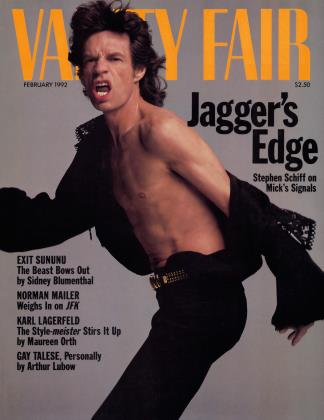Sign In to Your Account
Subscribers have complete access to the archive.
Sign In Not a Subscriber?Join NowEleven years after his infamous best-seller, Neighbor's Wife, nearly destroyed his reputation, his friendships, and his marriage, Gay Talese has worked out his demons in Unto the Sons. A sweeping chronicle of the Italian-American soul, the book marks the first time Talese has turned his sharp eye to his own life. ARTHUR LUBOW reports
February 1992 Arthur LubowEleven years after his infamous best-seller, Neighbor's Wife, nearly destroyed his reputation, his friendships, and his marriage, Gay Talese has worked out his demons in Unto the Sons. A sweeping chronicle of the Italian-American soul, the book marks the first time Talese has turned his sharp eye to his own life. ARTHUR LUBOW reports
February 1992 Arthur Lubow View Full Issue
View Full Issue






Subscribers have complete access to the archive.
Sign In Not a Subscriber?Join Now